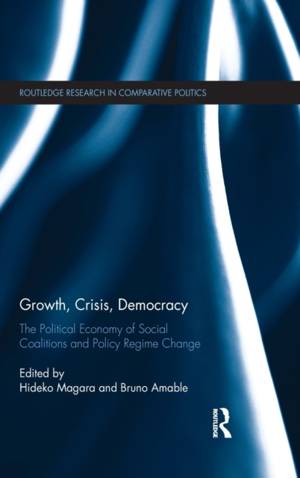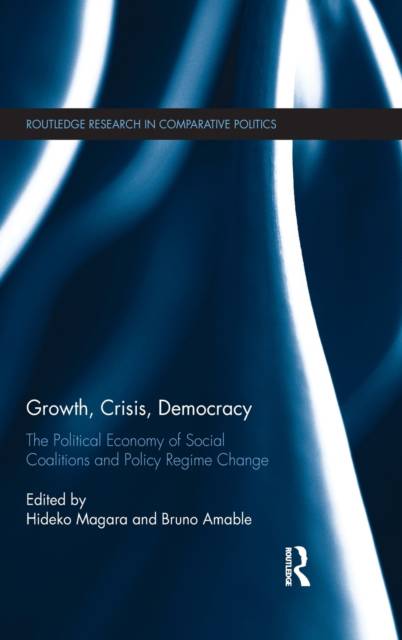
- Retrait gratuit dans votre magasin Club
- 7.000.000 titres dans notre catalogue
- Payer en toute sécurité
- Toujours un magasin près de chez vous
- Retrait gratuit dans votre magasin Club
- 7.000.000 titres dans notre catalogue
- Payer en toute sécurité
- Toujours un magasin près de chez vous
Growth, Crisis, Democracy
The Political Economy of Social Coalitions and Policy Regime Change
Description
Since the global financial crisis of 2008, advanced economies have been making various efforts to overcome the economic impasse. While the contrast between the countries that have escaped from the crisis relatively quickly and those still suffering from serious problems is becoming clearer, a new economic crisis stemming from newly emerging economies has again impacted advanced economies. In retrospect, both leftist and rightist governments in advanced economies pursued expansive macroeconomic and welfare policies from the post-WWII period to the oil shocks of the 1970s. While we recognise that the particular policy regime in this 'Golden Decades' during which the left and the right implemented similar policies cross-nationally, were characterised by outstanding economic growth in each country, the specific growth patterns varied across countries. Different social coalitions underpinned different growth models.
This book is premised on tentative conclusions that Magara and her research collaborators have reached as a result of three years of study related to our previous project on economic crises and policy regimes. Recognising the need to analyse fluid and unstable situations, we have set up a new research design in which we emphasise political variables-whether political leaders and citizens can overcome the various weaknesses inherent in democracy and escape from an economic crisis by establishing an effective social coalition. A new policy regime can be stable only if it is supported by a sufficiently large coalition of social groups whose most important policy demands are satisfied within the new policy regime.
Spécifications
Parties prenantes
- Editeur:
Contenu
- Nombre de pages :
- 264
- Langue:
- Anglais
- Collection :
Caractéristiques
- EAN:
- 9781138222182
- Date de parution :
- 30-05-17
- Format:
- Livre relié
- Format numérique:
- Genaaid
- Dimensions :
- 155 mm x 234 mm
- Poids :
- 521 g






